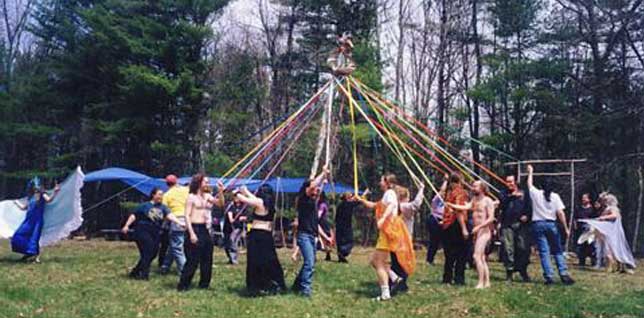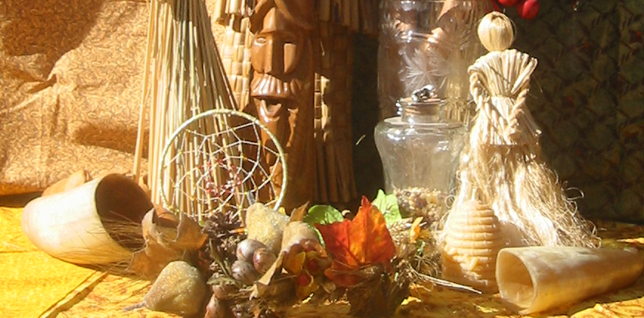Warrior Archetypes X: Hercules - Heroic Insanity
The hero Hercules, greatest and most revered of all the Greek heroes, was deliberately spawned by Zeus in order to create a special protector for mankind. In practice, Hercules killed as many innocents as he protected. It was as if Zeus’s grand experiment to create the Ultimate Hero went entirely wrong, creating a super-strong, drunken, half-mad idiot who saves and massacres people by turns. Of course, much is blamed on Zeus’s jealous wife Hera, who hated Hercules and constantly tried to get him killed, but this line of excuses has the ring of a late-addition devil-made-me-do-it pretext. The hero’s very name - Heracles in the original Greek - means Glory of Hera, and it is patently obvious that he is actually her special hero, the one who acts out her repressed aggressions in a quite satisfactory way.
Hercules is basically a loose cannon. His adventures are peppered by brutal killings, often accidental or done in a fit of temper. He starts by killing one of his childhood tutors, and eventually permanently injures another one accidentally - the wise centaur Chiron, who bears a poisoned wound for life. The twelve labors are placed on him by his kingly cousin Eurystheus because he kills his wife and children. This is supposedly due to a madness placed upon him by Hera, but this madness seems to recur throughout his life. It’s a terrible irony - the one man who is stronger than all the other mortals has a case of periodic mental illness that makes him dangerously violent.
To take on this archetype is to take on the Dream of the Hero. It’s about the glory that one is supposed to accrue through warfare and physical courage. We’re no stranger to this dream; we’ve all been fed the idea, at one point or another, that the only good death is one in battle, and that even dying in battle is a good thing as long as your deeds were heroic enough that you will be remembered. It’s an ambivalent Dream. We feel its pull even as we shy away from it. We are seduced by it even as we speak out against it. It makes us jittery, even when we adore it. Like Hercules, it is mixed blessing and curse. Hercules warriors may find themselves inadvertently slipping into the mindset of the Holy Hero over insignificant annoyances; if they’re not careful, anything can trigger a Hercules episode. On the other hand, they are happily willing and even enthusiastic about rushing into battle for a Holy Cause, as long as they can be convinced - and to be fair, often they don’t take much convincing - that the cause is indeed Sacred.
Hercules is, of course, finally done in by a woman. While traveling with his wife Deianeira, she is accosted by the centaur Nessus, who carries her off to rape her. Hercules shoots him as he runs away, and Deianeira is saved....but the dying centaur whispers to her to soak up some of his magical blood with her skirt, and if ever Hercules should seem to be straying, she should weave it into a shirt for him to wear. She takes him at his word, and saves some of his blood. Not long afterwards, Hercules decides to steal a princess named Iole, whom he has loved for many years, and replace Deianeira. She becomes frightened and makes the shirt, but the centaur has played a cruel trick on her. When Hercules dons the shirt, it burns him so fiercely that he bursts into flame and dies.
After his death, however, things change. He is brought up to Olympus, where he is made an immortal and marries Zeus’s daughter Hebe. His character completely changes at this point; he ceases all violence and becomes instead a magical protector that people call on in times of need. The cult of Hercules was incredibly popular throughout the Hellenistic era, and not necessarily because people wished to imitate him. As a divine protector, he was invoked frequently by frightened travelers and the oppressed; his checkered past simply made him a god who knew what it was to be human and imperfect, and therefore would be more likely to aid other imperfect humans.
The Hercules warrior who desperately wants a cause may take up with the first one that comes by, forgetting to turn on his skepticism. Yet we do need heroes in this world - meaning those who are willing to put themselves in harm’s way to make the world a better place. This is, in a way, the ultimate archetype of the Questing Warrior - Hercules does not do well in an army - and he must have his lone quests in order to gain his glory.
It is no accident that Hercules had to die before he learned self-control. Sometimes the would-be hero has to undergo a terrible experience that strips his soul and his assumptions to the bone, forcing him to start over as someone entirely different, before he can see truth through the propaganda. To be the divine hero, one has to have been the imperfect, messy, half-mad mortal hero, and then one has to die - often painfully - to that existence, in order that one might both know it well and be done with it. Only then can the hero fulfill the Dream of Glory that was promised out of that nebulous cloud that held out the sword. Hercules must learn the hard way, because that is the nature of this archetype - one of the strangest, most painful, and most glorious of all the warrior natures.








